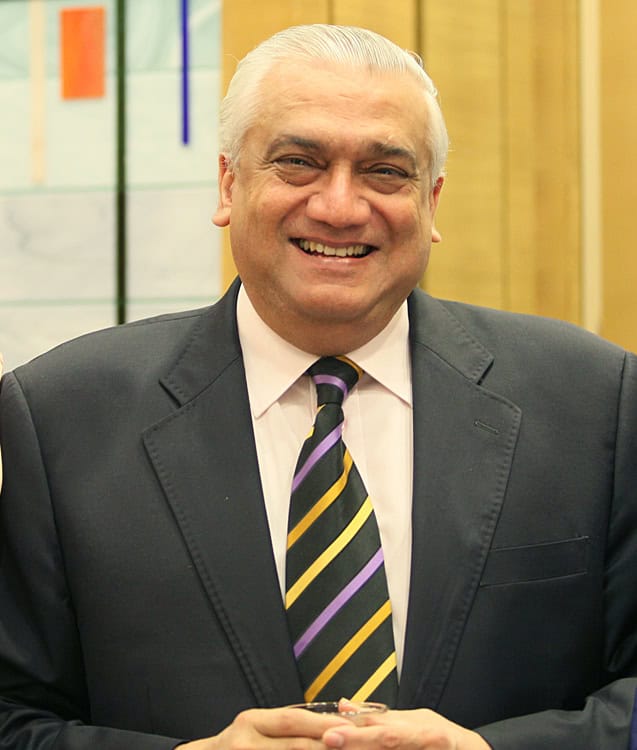Pratigyan Das for TOI Q&A
US President Donald Trump has overturned decades of American policy by recognising Jerusalem as Israel’s capital. Talmiz Ahmad, former Indian Ambassador to Saudi Arabia, Oman and the UAE, spoke to Pratigyan Das about how this move impacts the Middle East and India:
Why has US President Donald Trump recognised Jerusalem as the capital of Israel?
President Trump is catering to his domestic constituency, both evangelical Christians and the Jewish lobby. For several years, these groups have been putting pressure on successive presidents to recognise Jerusalem as the capital of Israel and move the American embassy there. In their election campaigns, both Bill Clinton and George Bush Jr had promised to do this. In the case of Trump, the difference is he has implemented the promise. Why has he done it? My own view is that his domestic base now is very narrow. Most Americans view his presidency as disastrous. The support that he has, he thought would consolidate that with a dramatic gesture.
What are its ramifications for the Israel-Palestine conflict?
When Trump was elected, he had said he would settle the Israel-Palestine conflict in the “deal of the century”. With the unilateral recognition of Jerusalem, it seems he has seriously compromised his own position of achieving an Israel-Palestine deal. But Trump hasn’t specified Jerusalem’s limits.
By and large, international opinion has accepted that West Jerusalem will be Israel’s capital. East Jerusalem is expected to be the capital of a viable Palestine state as and when it emerges. The formula that is used in Israel to describe Jerusalem is “unified Jerusalem”, which means East and West. The crucial point that needs to be noted is that Trump hasn’t referred to Jerusalem as unified Jerusalem. He has projected himself as the friend of Israel but he has not conceded Israel’s position.
Israel will now be under tremendous pressure to participate in the peace process and ultimately make some concessions to Palestine, so that Trump can realise his deal of the century. Secondly, Trump hasn’t indicated when the embassy will shift. This means Trump has retained the option of shifting the US embassy only as part of the final settlement.
How does this alter the global equation?
Not at all. The international community accepts that there has to be a final settlement between Palestine and Israel which requires them to address three issues: Palestine must become a sovereign and a viable state (territory should be contiguous); the question of the refugees who were evicted from their homes in 1948, 1967 and 1973; status of Jerusalem. So, there has to be a final settlement where only the Palestinian and Israeli delegations will talk to each other. This is the global position. So, nothing actually has changed on the ground.
What’s your take on India’s response to this US decision?
Well, our official spokesperson said: “India’s position on Palestine is independent and consistent. It is shaped by our views and interests, and not determined by any third country.” New Delhi has reiterated India’s traditional position, that there must be a total two-state solution.
Do you think India’s response will affect its relations with Israel, which have shifted under the Modi government?
We have had bilateral relations since 1992. In these 25 years, our relationship has been very significant both in defence and technical cooperation. The scenario hasn’t changed. The perception that there has been a shift towards Israel is imaginary. Our relationship with Israel is on its own merits and the same holds true of our relations with Palestine. Our commitment to Palestine and its aspirations has not been diluted in any way. Neither has our relationship with Arab nations.
How important is West Asia for India’s strategic and energy needs?
First there is energy security. India gets 80% of its oil from this region. Secondly, this region is very important for trade. Thirdly, investment wise it is important. Moreover, the presence of our community in this region makes it vital for us. Besides, India has a large number of extremely important connectivity projects in this region – from Chabahar to Afghanistan to Central Asia and to Russia. More importantly, New Delhi has reasons to be concerned about the regional politics, particularly with regard to the rise of extremism and terrorism and the fear that some of these terrorists might entice our communities to become extremists. So India’s long term interests are directly related to the security and stability of the region.
What should be India’s role in West Asia?
India must play a proactive role in promoting security in the West Asian region. Indian diplomacy should spread outside the confines of South Asia – and assume the responsibility to promote dialogue between Saudi Arabia and Iran.
(The interview was first published on Times of India taken by Pratigyan Das)

